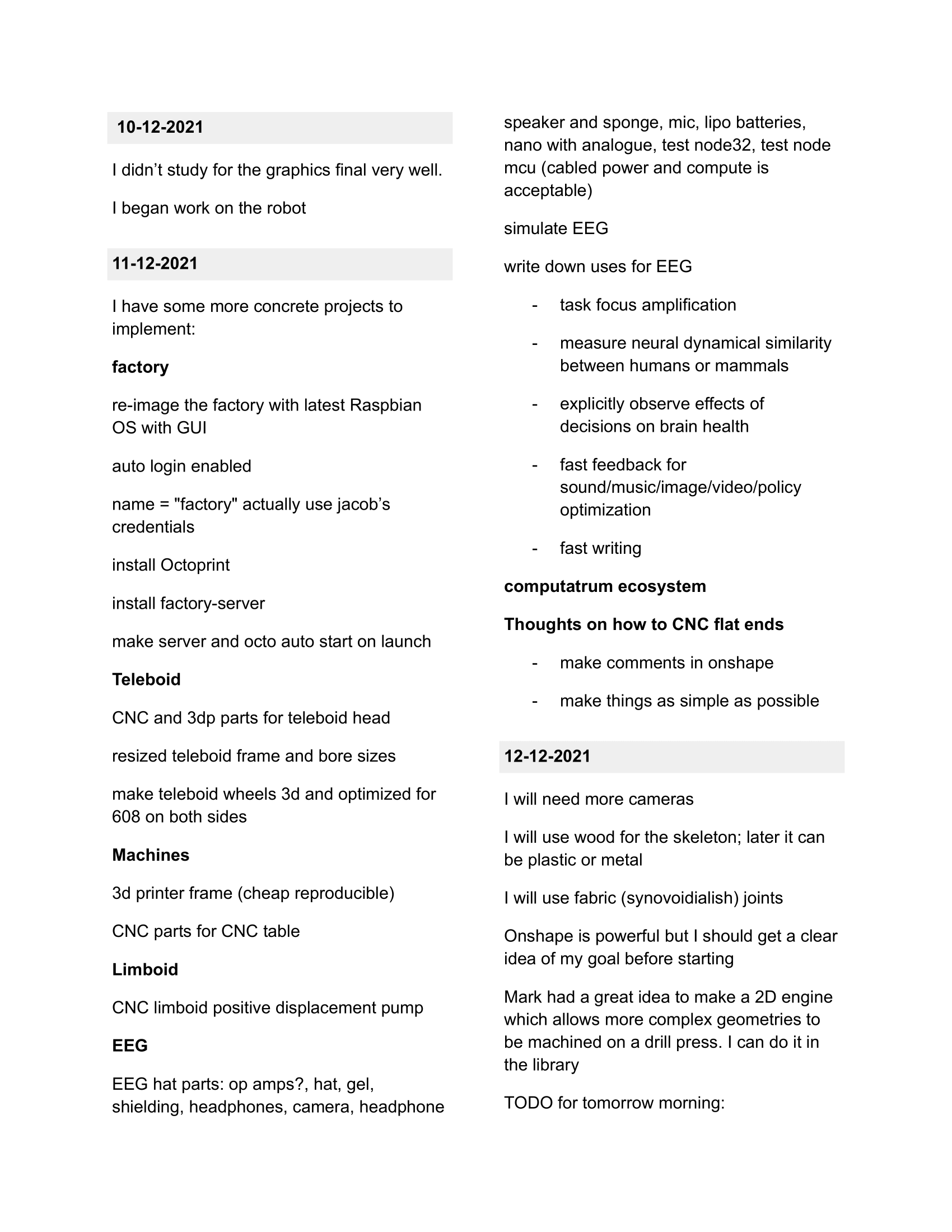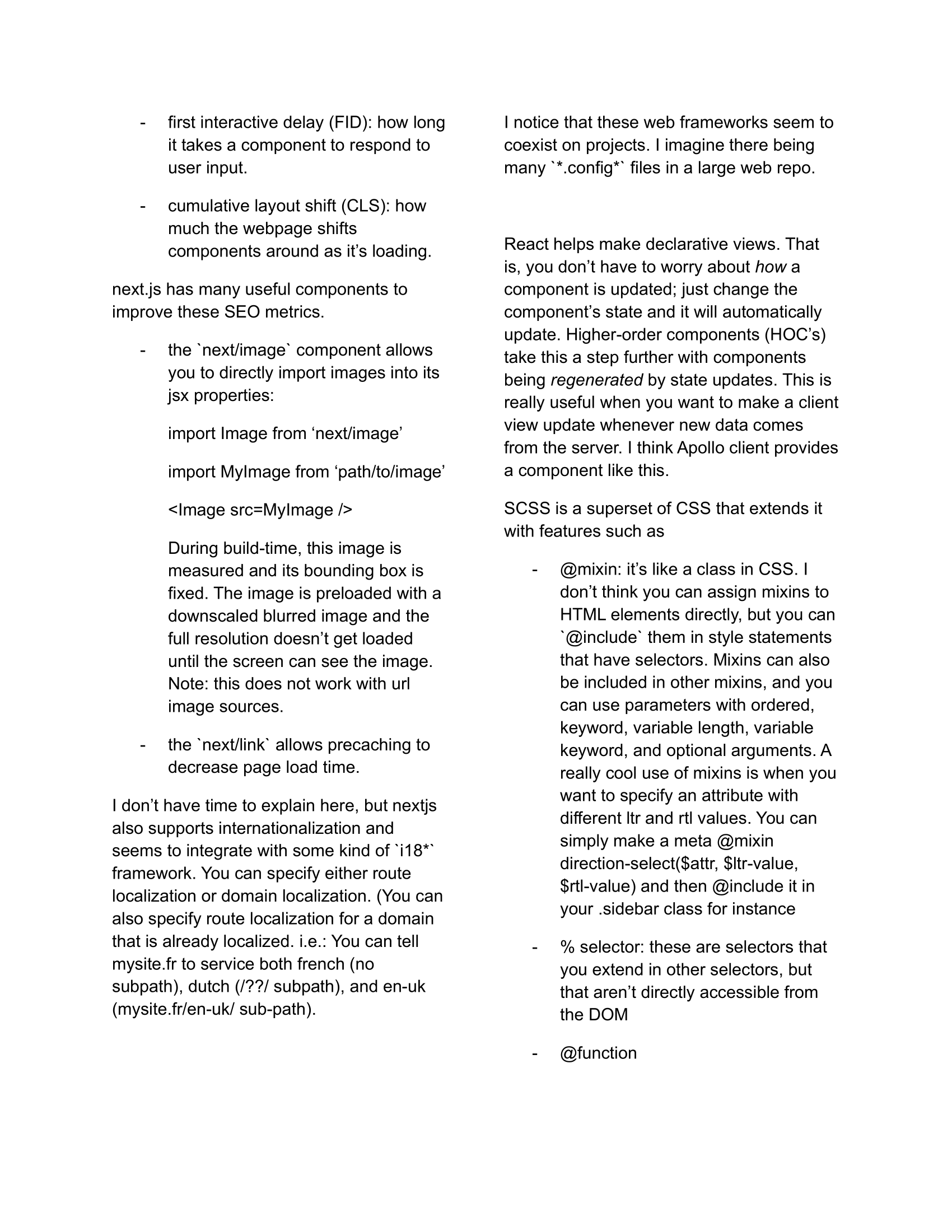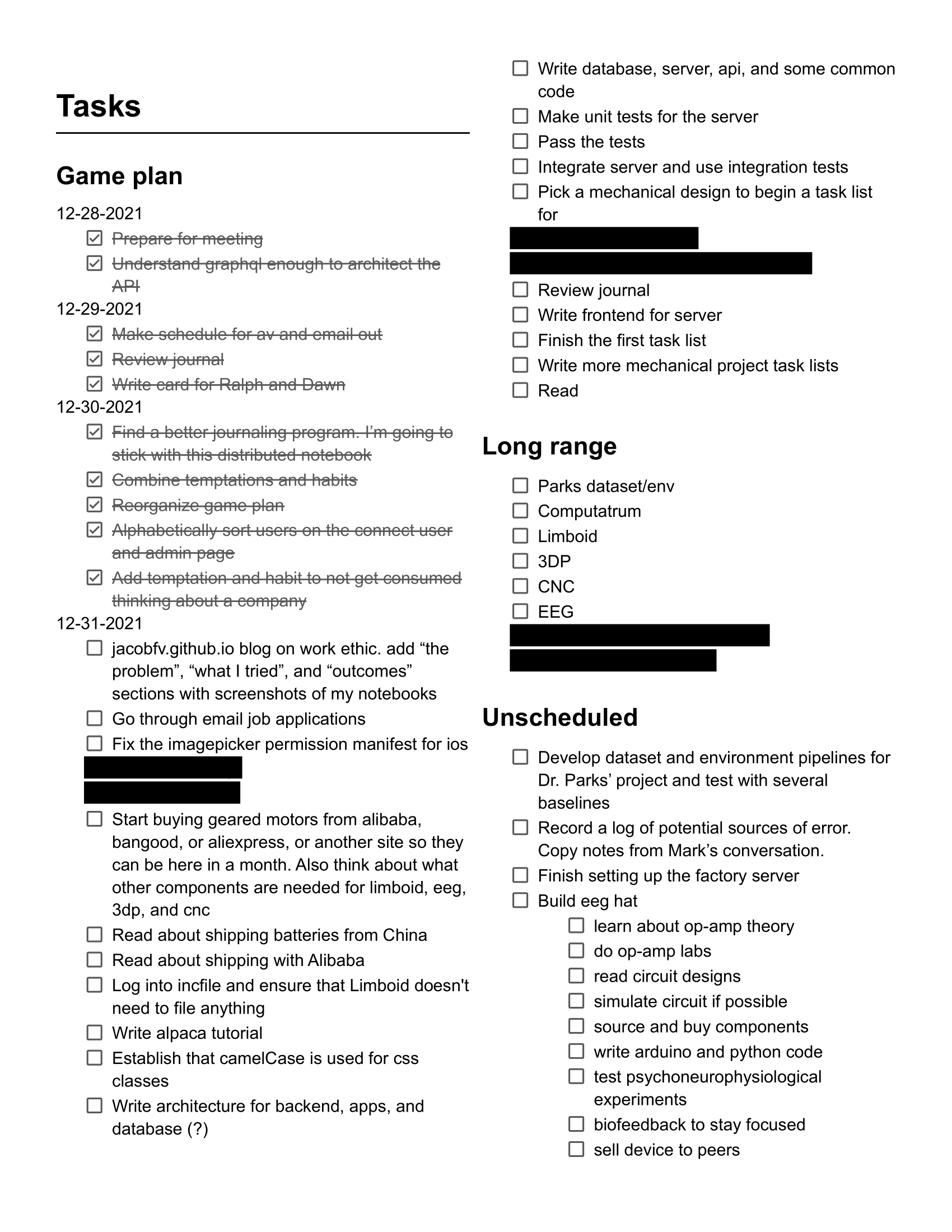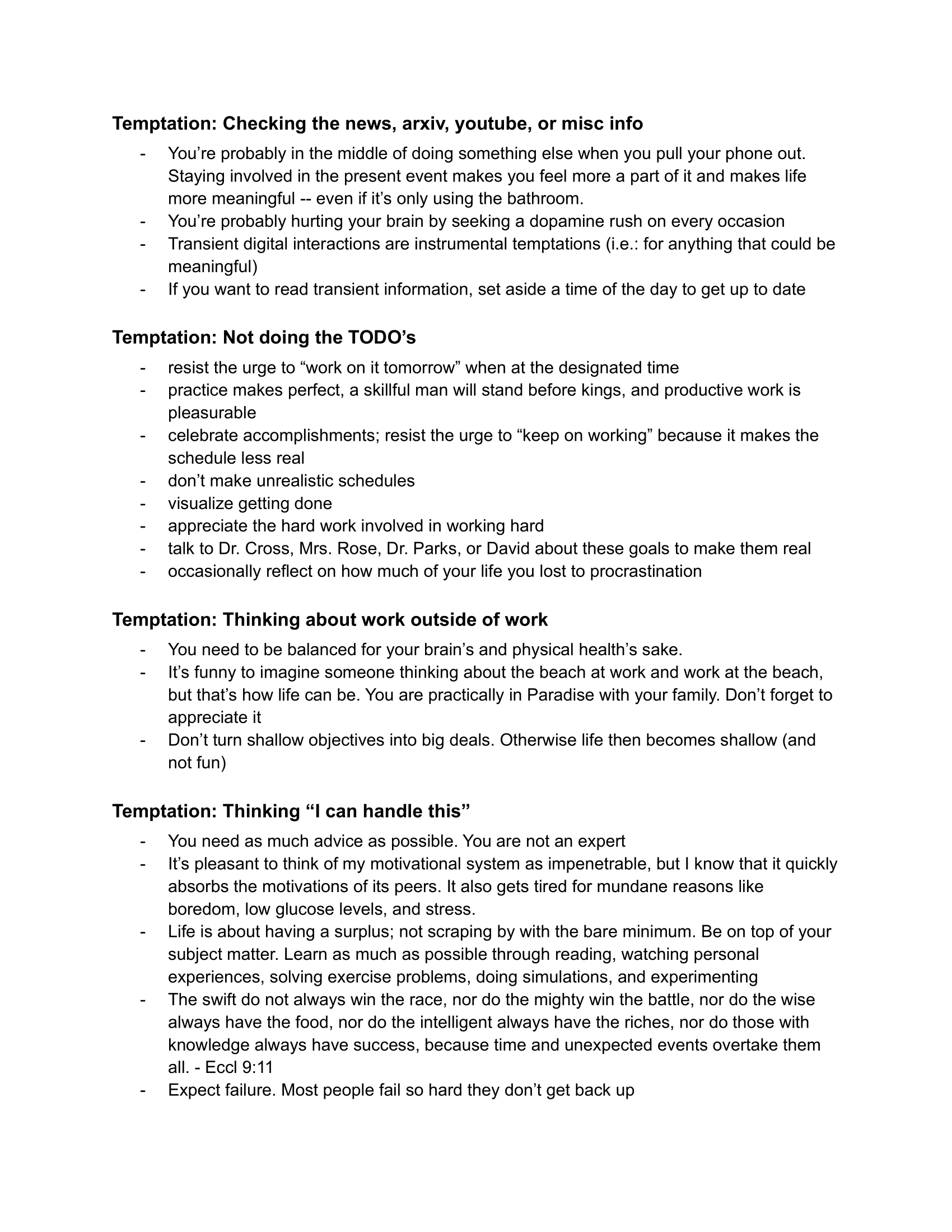Ergonomic Optimization
The Problem
I don’t find it easy to remain productive when I’m working at the computer (not to suggest that I am generally productive anyway). I’ve unintentionally conditioned myself that whenever I sit down at the computer, I need to browse the latest papers / popular repositories / system settings / etc. but not actually do the work I came to do. I’m thankful that I’m not overwhelmed with things to do anyway, but I think I could be much more productive than I currently am.
What I tried
I started by recognizing that I needed to change some of my personality traits, routines, and motivations. I started spending more time alone thinking out loud about the things I need to do. This evolved into a journal where I record my thoughts on problems, emotions, and ideas and then reflect on them later. I started using these habits and techniques to think explicitly about how I can continue changing my personality. I made a “Habits” document where I record habits I need to create, stop, and specific techniques that help me change.


The latest extension to my externalized cognitive toolkit is a “Tasks” document. I divide tasks into four categories:
- Game plan: scheduled tasks with details
- Long range: goals to keep focused on in the long range
- Unscheduled: tasks that are not scheduled yet but should be handled
- Optional: I don’t want to forget these task entirely, but nothing bad happens if I don’t do them
If I don’t finish everything on the plate for today, I simply move it over to the next day and work on that at the first chance. However, I generally work to be realistic – but not too conservative – with my demands.


Outcomes
30 days into this routine, I definitely see positive results. Making a habit of thinking about the things I need to do has helped me to be more productive while avoiding the need to constantly worry ‘did I do this or that?’. Anytime a to do pops in my head, all I have to do is write it down and then I can free my brain to focus on the context I’m currently in.
Taking time to think out loud and using a gratitude journal has seriously helped me increase control over my emotions which in turn has helped me to be more productive. Journaling has helped me to be more aware of my emotions and to ask myself questions like “what do I feel like doing?” vs. “what should I be doing?”. I really feel like this has helped me be more in control of my decisions.
Writing my thoughts down and revisiting them later helps me think about them more objectively. I see that I forget so easy without a written memory aid. Things that stressed me out never really mattered anyway. Many of the things that I thought were impossible to do now appear easy or otherwise more manageable. It seems that I have a lot more control of my life than I thought I did. I understand better why people say, “life is like a box of chocolates”; it’s full of color, emotions, thoughts, activities, accomplishments, and surprises. YouTube doesn’t compare to a productive day!
Going forward
A few days ago, I read through all these cognitive tools, and I was amazed at how they have improved my productivity. Obviously, I’m going to continue using them. However, I don’t want to stop here. Like a manufacturing toolchain that continually gets upgraded, I will continue refining my productivity habits and techniques and I will also start making regular reviews of my journal to avoid repeating any mistakes I’ve made. I may even start a “Mistakes” document to record specific cases to watch out for. I will also start quantifying objectives and subjectives like tasks completed per day, tasks completed / tasks attempted per day, relative emotion positivity and negativity, big breakthroughs per week, etc.
I’m definitely not perfect, but I’m going to use every tool I have to optimize my habits, personality, productivity, and self. I hope sharing this reflection will help others on their personal journey as well.